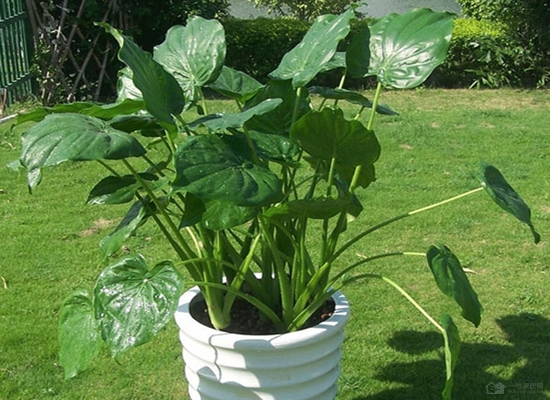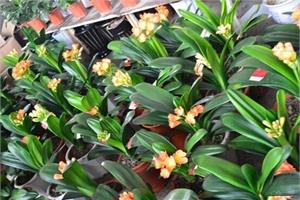Understand the growth habits and take good care of Dishui Guanyin.
The beautiful branches and leaves of dripping Guanyin, green and green, are as lovable as tears. Therefore, many friends will plant dripping Guanyin as an indoor green plant. But how to raise Dishui Guanyin? Is it not easy to survive? In fact, the cultivation of green plants should start with their growth habits.

As a matter of fact, Dishui Guanyin is not easy to raise. As long as you pay attention to a few points, you should be able to take your time on how to raise Dishui Guanyin.
1. Use soil
Although Dishui Guanyin does not have very high requirements for soil, it grows slowly, thin and malnourished with pastoral soil; Dishui Guanyin cultivated in pure sand grows well in the seedling stage, but the effect is not good in the later stage. Dishui Guanyin is relatively low; the plant of Dishui Guanyin cultivated in nutritious soil is strong, the leaves are large, and the growth is very strong. Therefore, it is best to choose a better soil, such as their own configuration of more fertile, permeable soil.
2. Selection of flowerpots
Generally speaking, using a small basin to raise dripping Guanyin will inhibit its growth due to the limitation of its roots. Therefore, if you want Dishui Guanyin to grow bigger, you must choose a larger basin. According to experience, the bigger the basin, the stronger and better Didi Guanyin will grow.
3. Lighting and watering
Dishui Guanyin likes a semi-overcast environment, so you should not let the sun shine directly. As for how to water dripping Guanyin, it is raised in a small basin and watered when the basin soil is dry, to make sure that all the water can leak out from the bottom of the basin. Large basin and deep basin, the surface of the basin soil is dry, you can dig up the soil on the surface to have a look at the color, if the soil below is wet or wet, then there is no need to water.
4. Diseases and insect pests
The most common diseases and insect pests in dripping Guanyin are red spider aphids. The symptoms are yellow leaves, white spots on the surface, thin plants and reticulate leaves. Its treatment method is: use light soapy water to wipe clear leaves, the back and front should be cleaned, and then rinse with clean water, large basins can be cleaned with spray, once every two or three days for a week, the effect is more obvious.
5. Reproduction
(1) ramet, sowing and other methods can be used. Every summer and autumn, Amorphophallus tubers will sprout small sea taro with leaves, which can be combined with turning the basin and changing the soil for ramet. When the fruit is ripe in autumn, the orange seeds are harvested, sown with picking, or dried and stored, and sown after the following spring.
(2) the truncated stem of sea taro is aimed at the perennial old plant, which can be cut off from the base of the plant about 5 meters away from the unearthed surface to propagate the stem. It is suitable to cut off the dried taro in spring, summer and autumn. During the planting period, the moisture of the substrate (6 parts of sand and 4 parts of ∶ garden soil) should be maintained, and the air humidity should be increased, so that many sturdy roots can grow in about 7-10 days. During the period of old plant cultivation, due to the shady and humid environment or spraying water on the leaf surface every morning and evening in summer and autumn, a few new plants occasionally sprouted on the old stem (especially on the stem base left after truncation treatment), and attached to many air roots. it can be planted in a pot from the junction between the daughter plant and the mother plant.
Dishui Guanyin likes to be warm and wet. It is said that it will stop growing when it is as low as 18 degrees. Therefore, it is an important task to ensure the safety of Dishui Guanyin through the winter. Therefore, during the winter, especially in the northern areas, it is necessary to move Dishui Guanyin to indoor cultivation.
- Prev

Culture methods and maintenance precautions of the most complete green pineapple [summary]
Culture methods and maintenance precautions of the most complete green pineapple [summary]
- Next

The role of gentleman orchid is to edify sentiment and live an elegant life.
The role of gentleman orchid is to edify sentiment and live an elegant life.
Related
- Wuhan Hospital Iron Tree Blooming Result Was Instantly Frightened by the Gardener Master
- Which variety of camellia is the most fragrant and best? Which one do you like best?
- What is the small blue coat, the breeding methods and matters needing attention of the succulent plant
- Dormancy time and maintenance management of succulent plants during dormancy
- Minas succulent how to raise, Minas succulent plant pictures
- What are the varieties of winter succulent plants
- How to raise succulent plants in twelve rolls? let's take a look at some experience of breeding twelve rolls.
- Attention should be paid to water control for succulent plants during dormant period (winter and summer)
- Watering experience of twelve rolls of succulent plants
- Techniques for fertilizing succulent plants. An article will let you know how to fertilize succulent plants.

